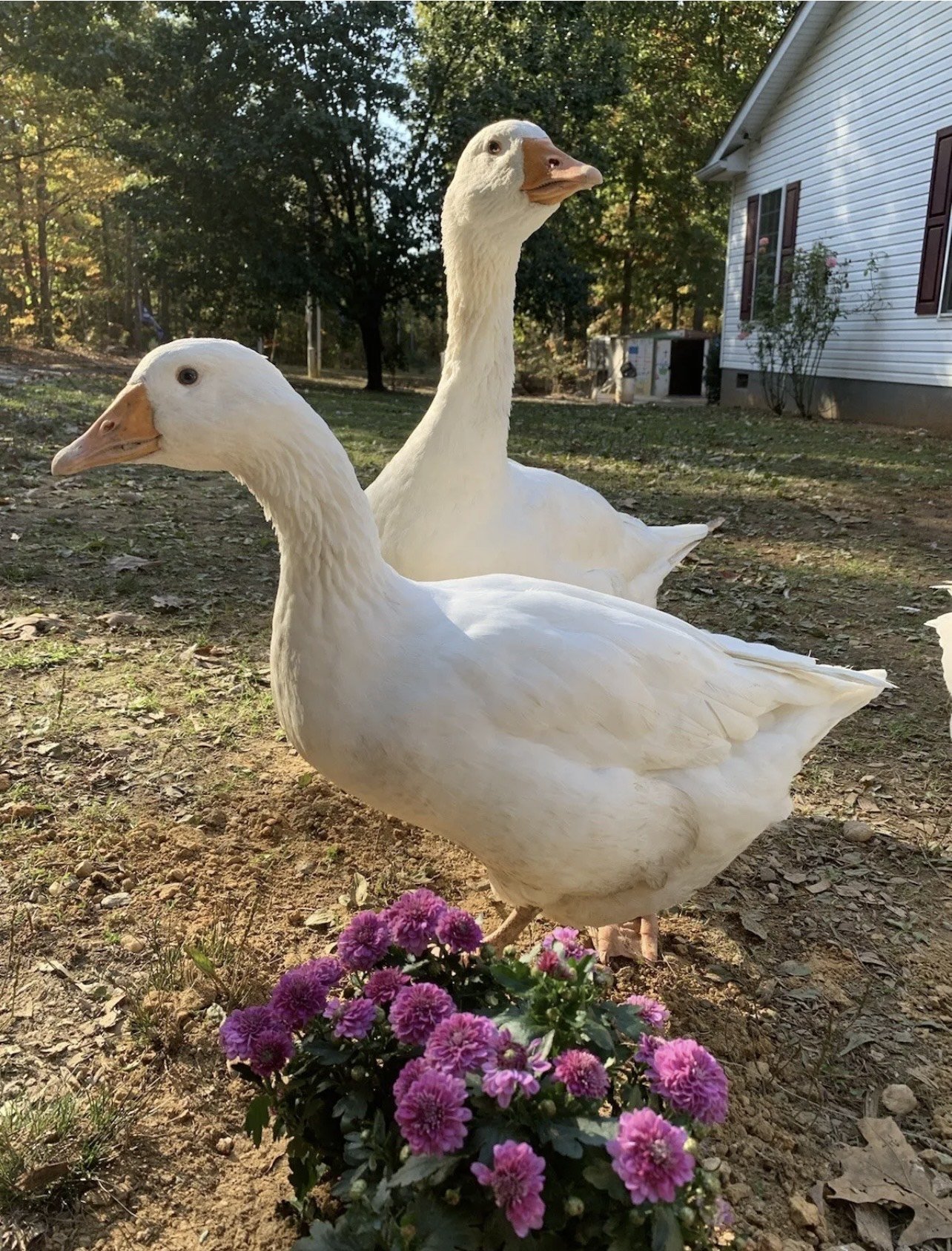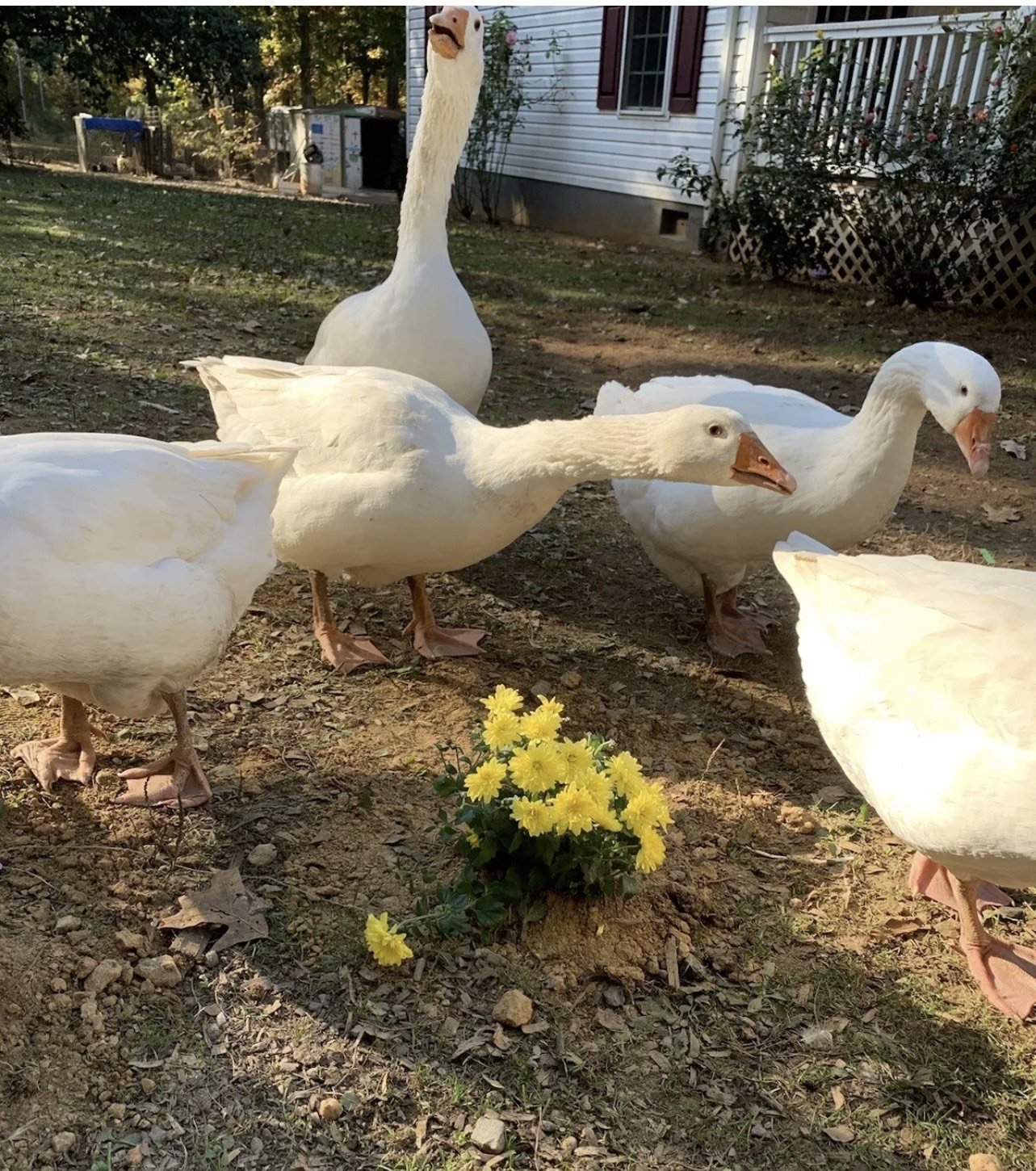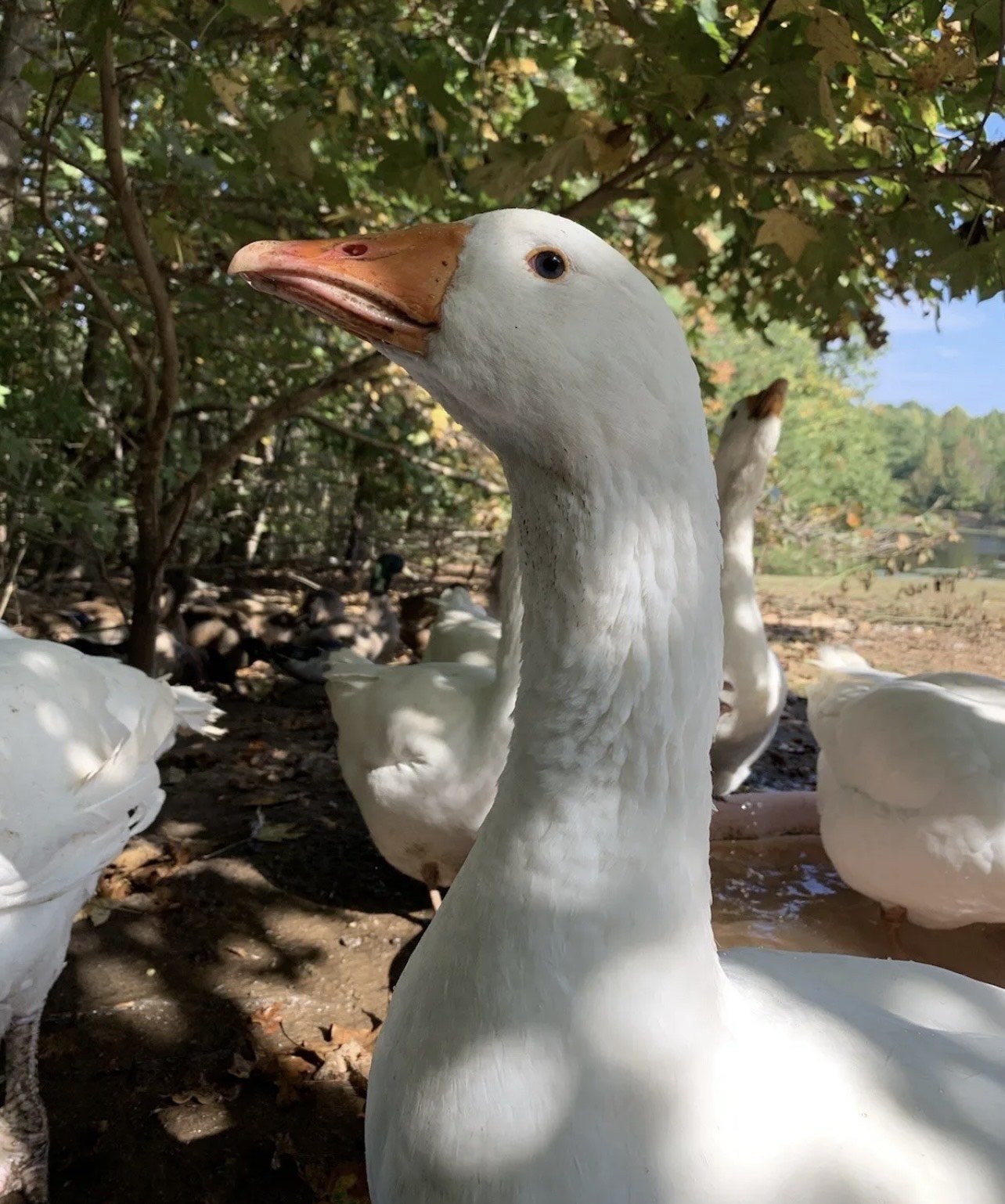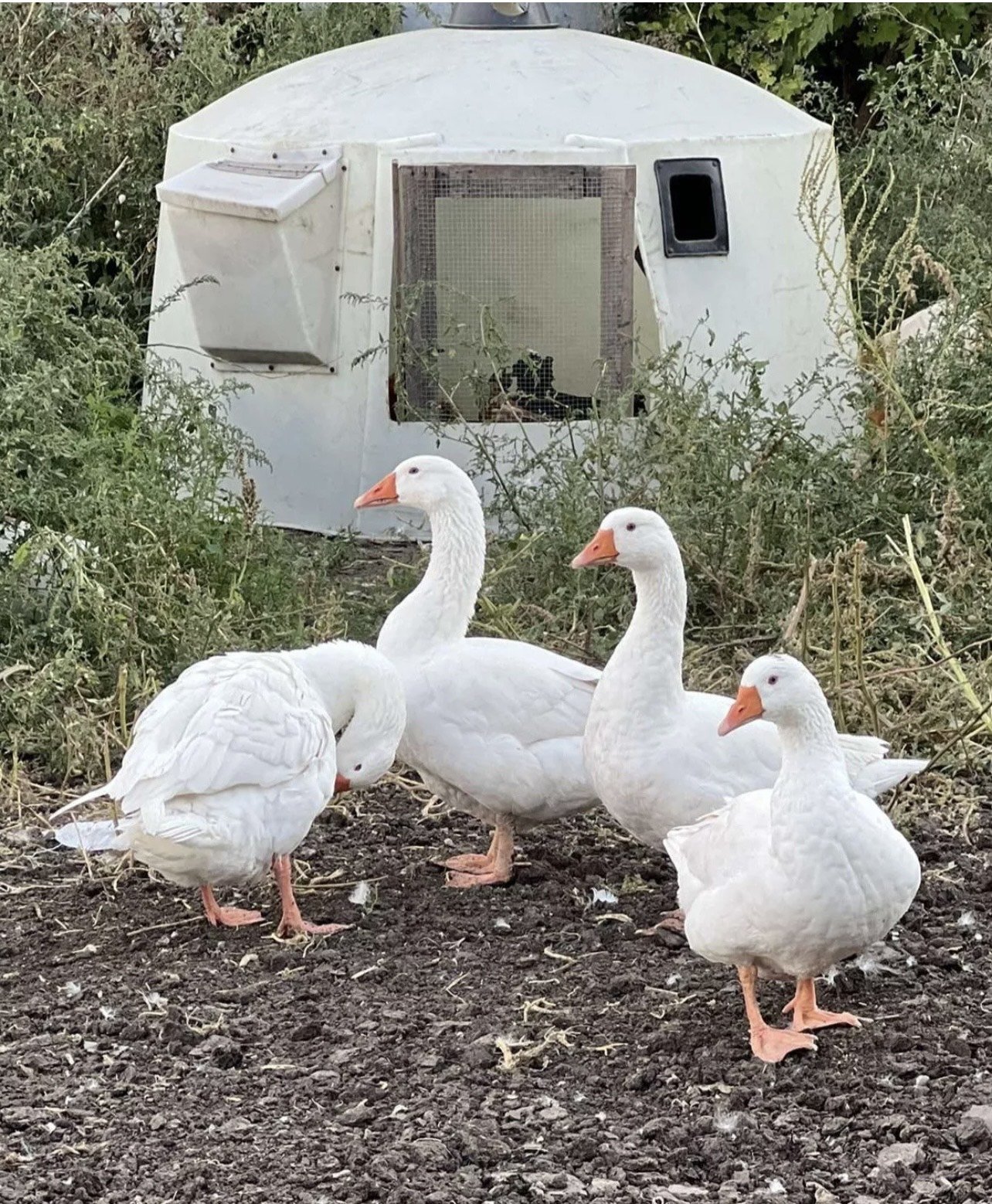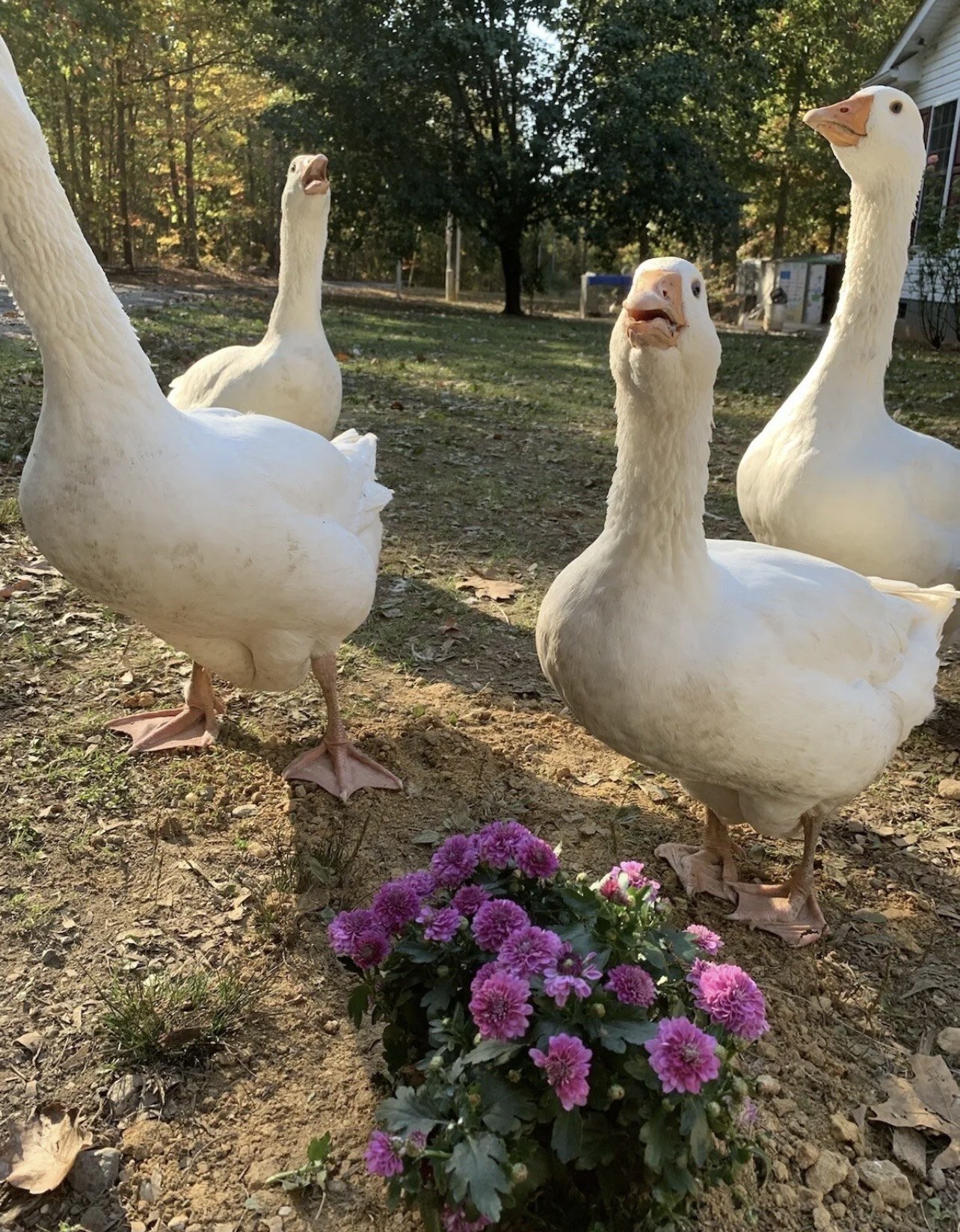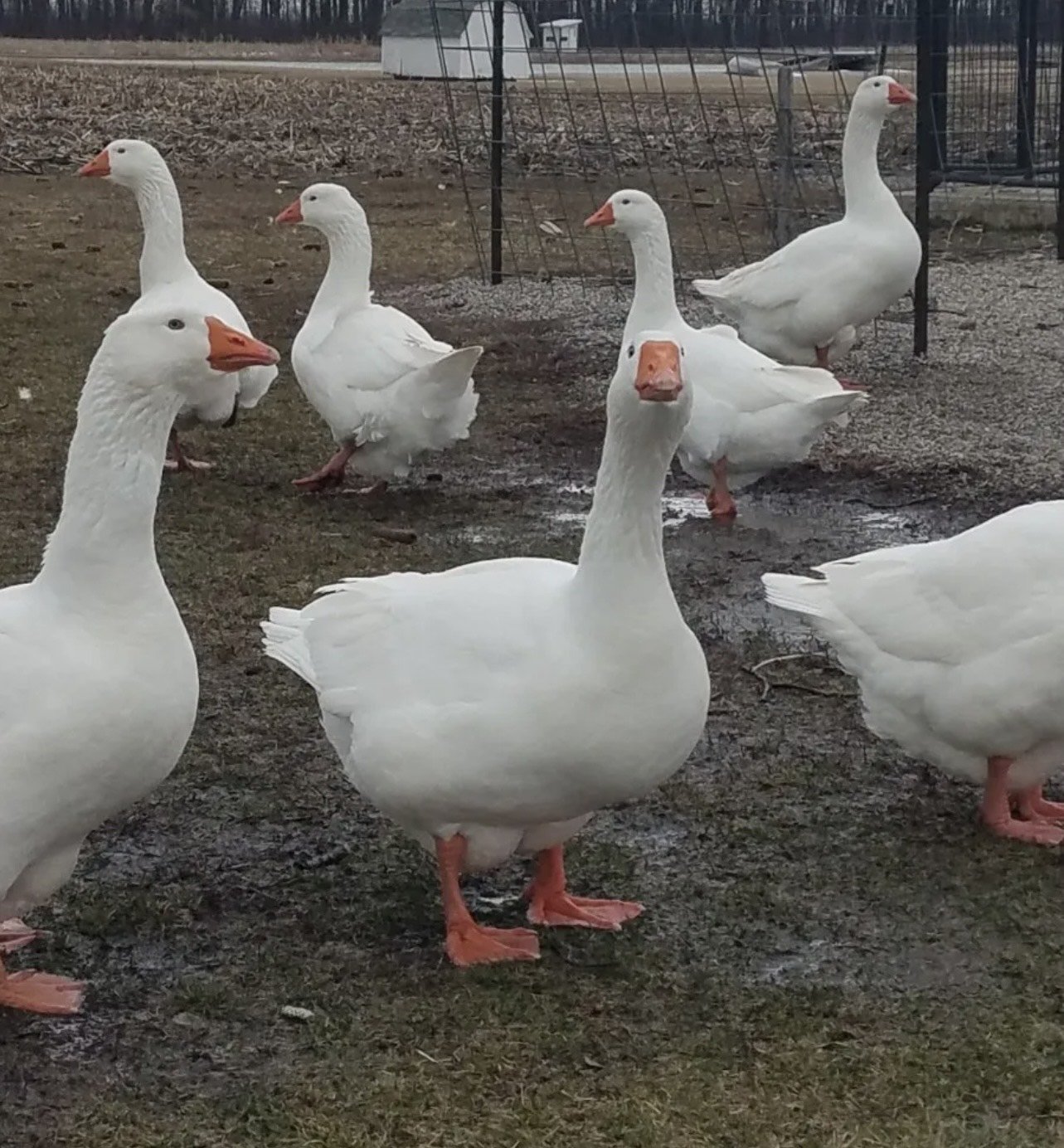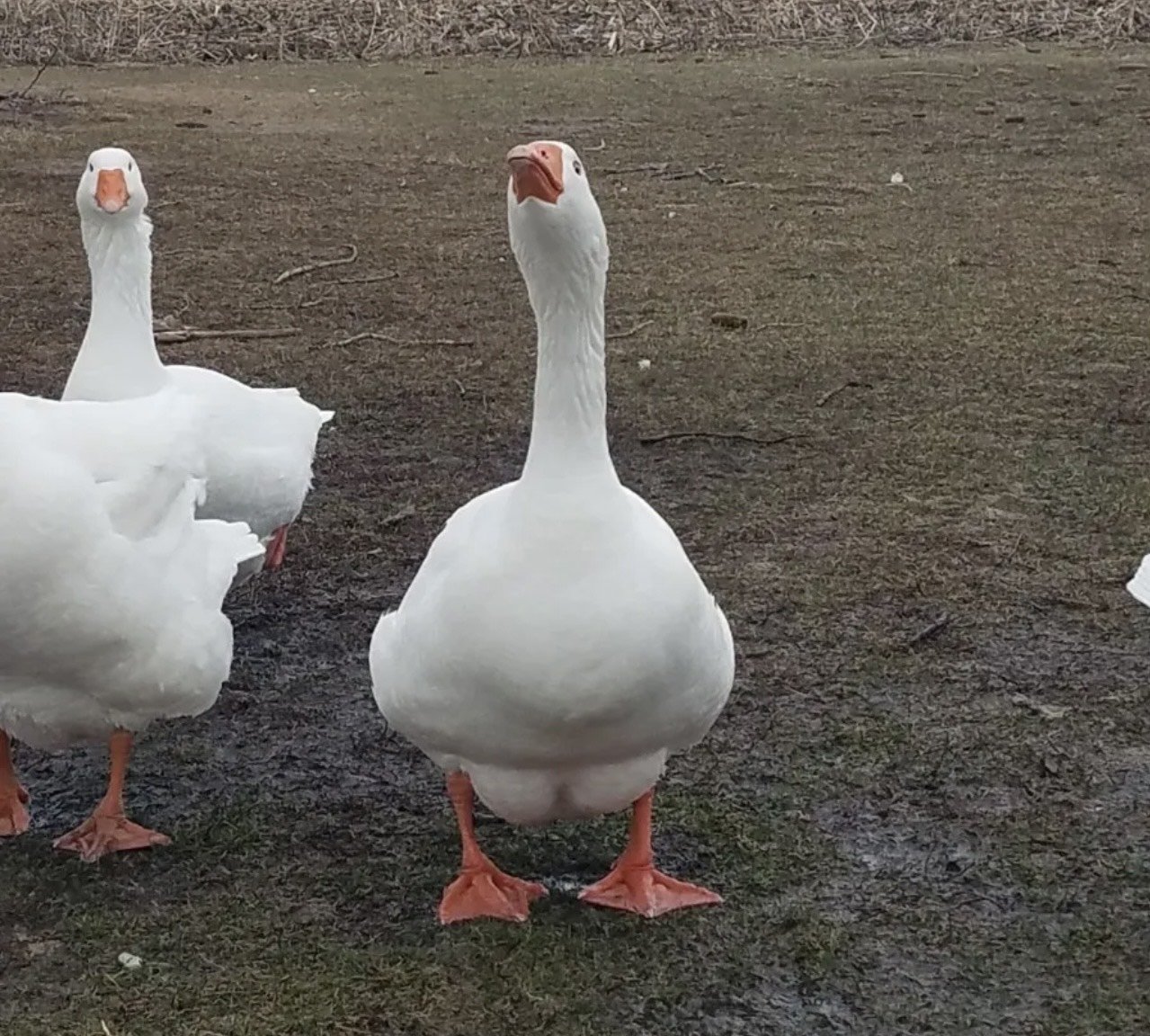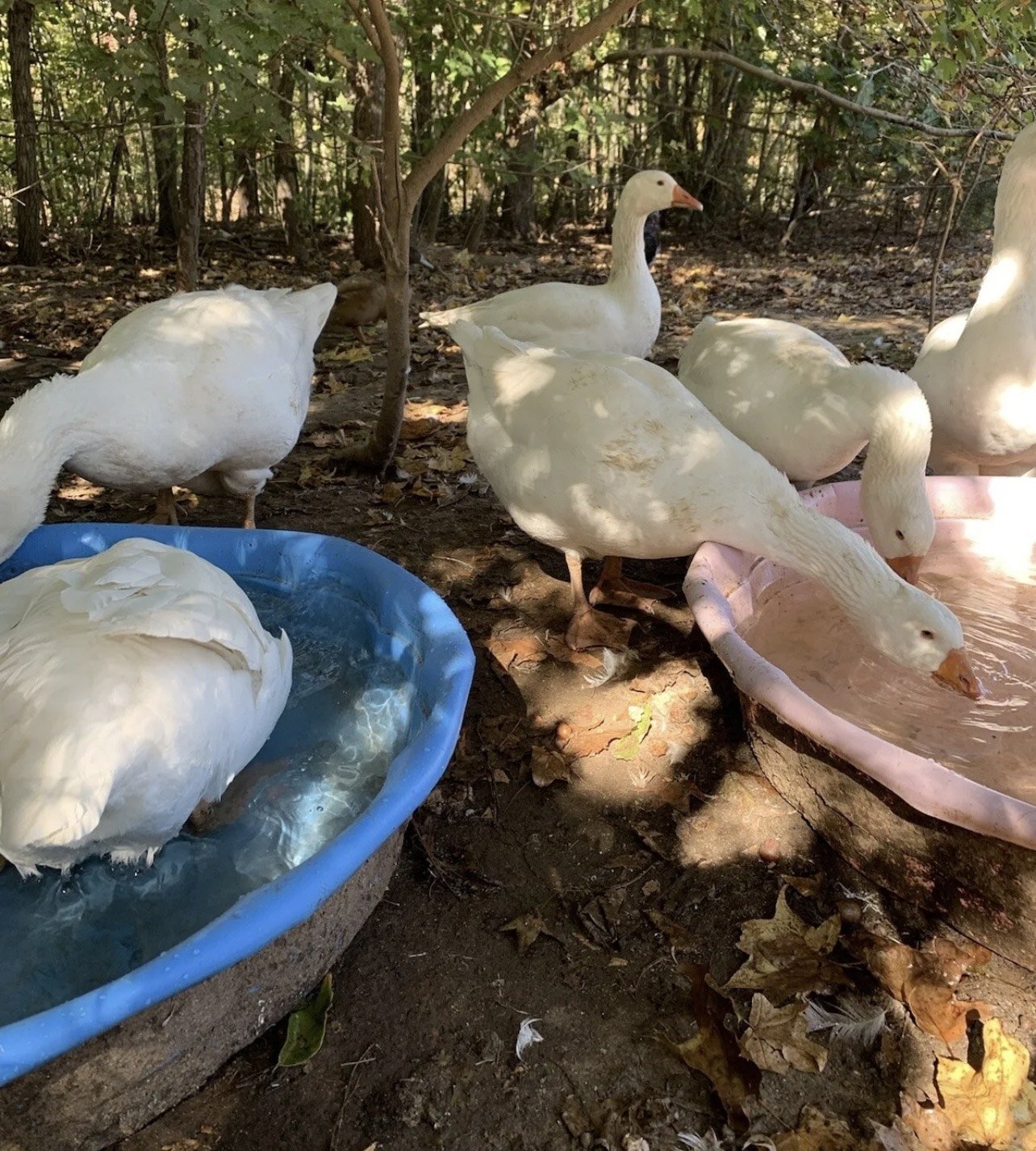Natural Born Guardians
Livestock Guardian Dogs for the Farm and Family
Embden Geese
NBG,s push for sustainability includes utilization of one of the best breeds of geese for self sustainability. With the cost of feed and uncertainty of future events that might affect supply, geese are a good answer. Able to survive by foraging on green grass, weeds along with insects and small creatures they could play a key role in protein and fat production without a high cost of feed. Not to mention the chemicals from the GMO grains. Eventually we hope to have all of the diet of our Turkish Boz Shepherds provided by what they are guarding on the farm.
Embden Geese also will set on their own eggs and make good mothers. Self sustainability that would not be possible if it were not for the protection of great LGD,s. Hard to raise anything if you are feeding the predators all your hard work.
Embden Geese are a popular breed of domestic goose known for their large size, striking white plumage, and gentle demeanor. Here's an overview of Embden Geese:
Origin: Embden Geese originated in Germany and are named after the town of Embden (now Emden) in Lower Saxony. They were developed in the 19th century through selective breeding for their meat production and white feathers, which were highly valued in the feather market.
Appearance: Embden Geese are large birds with a distinctive pure white plumage. They have orange-colored bills and feet, and their eyes are typically blue. Their bodies are broad and well-rounded, and they have a sturdy build. The males (ganders) are generally larger than the females (geese).
Temperament: These geese are known for their calm and gentle temperament, making them suitable for keeping as pets or for exhibition purposes. They can be quite sociable and may form strong bonds with their human caregivers if raised from a young age. However, like all geese, they can be protective of their territory and may exhibit aggression during breeding season or when they feel threatened.
Utility: While Embden Geese are primarily kept for ornamental purposes today, they were originally bred for their meat and feathers. They are still occasionally raised for meat production, as they have a good growth rate and produce high-quality, lean meat. Their feathers are also valued for use in pillows, bedding, and clothing.
Housing and Care: Embden Geese require adequate housing and access to water for swimming and bathing. They can be kept in a variety of environments, including backyard ponds, pastureland, or small farms. Like all geese, they are grazing birds and should have access to grass and other vegetation for foraging. Providing shelter from predators and inclement weather is essential for their well-being.
Breeding: Embden Geese are naturally good breeders and can produce a large number of eggs each year. They typically start laying eggs at around two years of age and can continue laying for several years thereafter. The eggs are large and white and are often used for culinary purposes, although some breeders may also hatch them to raise goslings.
Health: Like all domestic poultry, Embden Geese require proper care to maintain their health. This includes providing a balanced diet, access to clean water, and regular veterinary check-ups. Common health issues in geese include respiratory infections, parasites, and injuries from predators or aggressive behavior.
Overall, Embden Geese are prized for their beauty, docile nature, and utility, making them a popular choice for hobbyists and small-scale farmers alike.
Using Embden Geese for both egg and meat production on a sustainable farm can be a rewarding endeavor. Here's how you can approach it:
Selecting Breeding Stock: Start by selecting high-quality Embden Geese for your breeding program. Look for birds with good conformation, strong genetics, and desirable traits such as high egg-laying ability and good meat production. It's essential to prioritize health and vigor in your breeding stock to ensure the success of your flock.
Housing and Grazing: Provide suitable housing and grazing areas for your geese. Embden Geese are well-suited to free-range or pasture-based systems, as they are excellent grazers and enjoy foraging for grass and other vegetation. Ensure that your grazing areas are well-managed to provide ample forage and access to clean water.
Nutrition: Supplement the geese's grazing with a balanced diet to meet their nutritional needs, especially during periods of high egg production or growth. Incorporate locally sourced, organic feed ingredients whenever possible to minimize reliance on commercial feeds. Consider growing your own feed crops, such as grains or legumes, to further reduce costs and environmental impact.
Egg Production: Embden Geese are not known for their prolific egg-laying compared to some other breeds, but they can still produce a respectable number of eggs each year. Collect eggs regularly to prevent them from being damaged or soiled. Provide nesting boxes or secluded areas where the geese can lay their eggs comfortably.
Meat Production: While Embden Geese are primarily raised for meat in some regions, they are not as fast-growing as certain other breeds specifically bred for meat production. However, they can still produce flavorful, lean meat with proper management. Plan your breeding and production schedule to optimize meat production while allowing sufficient time for the geese to reach market weight.
Health and Welfare: Implement sound health management practices to keep your geese healthy and productive. This includes routine health checks, vaccinations as needed, and prompt treatment of any illnesses or injuries. Provide shelter from predators and adverse weather conditions, as well as access to clean water and bathing areas to promote good hygiene.
Marketing and Sales: Develop a marketing strategy to sell your goose eggs and meat products to local consumers, restaurants, or specialty markets. Emphasize the quality and sustainability of your products, as well as the ethical treatment of your animals. Consider direct-to-consumer sales through farmers' markets, online platforms, or farm gate sales to maximize profitability and build customer relationships.
By following these guidelines and adapting them to your specific farm circumstances, you can successfully integrate Embden Geese into your sustainable farming operation for both egg and meat production.
